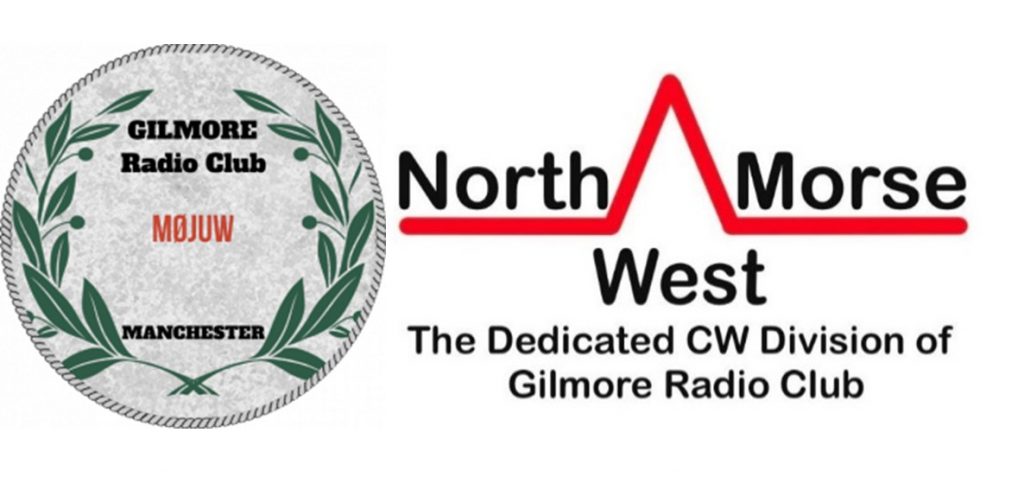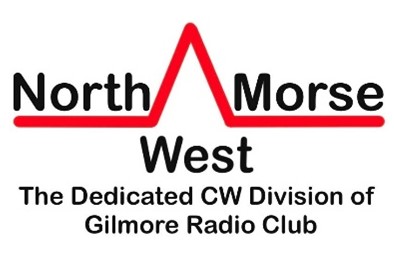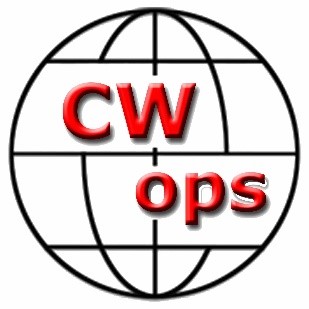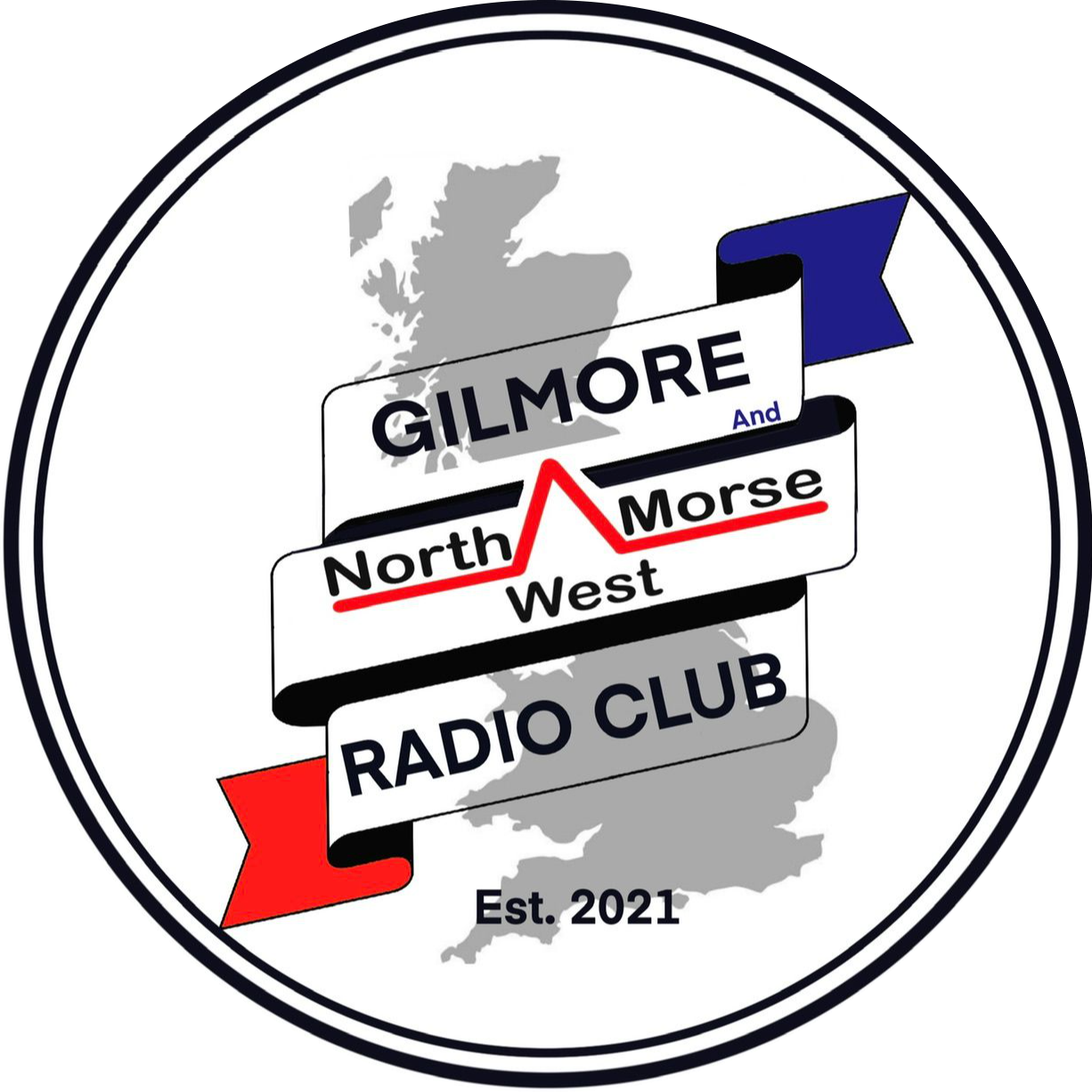Gilmore Radio Club – CW Corner News No 5, by David M0WDD

Welcome to CW Corner News No 5 from the friendly Gilmore Radio Club. This is your roundup of recent morse code activities by North West Morse, the CW division of Gilmore Radio club. I hope members enjoyed this article. We would like to hear your ideas for future articles, so please email David M0WDD through the GRC Group email to do this.
In this CW Corner News No 5:
- Review of NWM activities during 2022
- Two recommended free eBooks about learning CW
- A look at CWops and what they offer in learning CW
- The Gilmore Radio Club CW Quiz Number 4 ANSWERS
- The Gilmore Radio Club CW Quiz Number 5 QUESTIONS
- And Finally
1. Review of North West Morse activities during 2022


Background
The very first GRC club CW net was back on 3rd Jan 2022, on 6m, with myself David M0WDD in the chair and callers Keith M0JYP, Jamie M1JSC and Chris (M0KJC, then 2E0KJC). This worked well and subsequent weekly nets continued and developed into North West Morse (NWM) run by Chris M0KCJ and myself. The first NWM CW net was on 7th March 2022 on 80m with Chris in the chair and callers Keith and me. NWM nets have continued weekly, building up a core of 4-5 regular or semi-regular club callers.
The idea of NWM is to prompting CW throughout the North West, through GRC club activities, CW nets and helping interested hams starting in or returning to CW.
So to start the ball rolling, initial CW awareness sessions were run in the club including an on air demo. Depending on further interest, we can run these sessions again, although our current focus is on running our weekly Sunday evening CW nets at 7:30pm.
We want to include training activities as well as regular net exchanges, so our weekly nets alternate between a regular net on one Sunday and a training/quiz net on the next Sunday. You can see the schedule on the GRC website under Diary of Events.
Our regular CW net format is check-ins, reports, news and chat, and final comments before closing. Our training/quiz net has check-ins, reports, a quiz topic, and final comments before closing.
We also want to try different net frequencies, to allow for different members equipment, antennas, location and conditions. To date our CW nets have run on 80m, 10m, 6m, and 2m.
So what has gone well for NWM so far?
Thanks to Heather, Radcom regularly lists our NWM CW net schedule, and from the early days we are delighted to have built up 4-5 regular or near regular club callers on each weekly net. We also have occasional non-club callers. We welcome all and encourage them to consider becoming club members.
We also have occasional callers from further afield answering the net CQ. They tend not to stay on the net, preferring just a normal CW QSO exchange.
Since NWM started, we have had 4 email enquiries about learning CW, 2 from club members, and 2 from non-members. In this situation, we offer one to one on air practice QSOs and encouragement to join the net, and of these enquiries, 3 have had successful on air one to one CW QSOs, and of these, 2 have subsequently called in to the CW net.
In terms of the different net frequencies we have tried, local conditions between CW net participants has been excellent on 2m, good on 10m, and adequate but sometimes challenging on 6m and 80m.
Interestingly, all our core callers have managed net check-ins on each different net frequencies, in some cases by switching antennas for the best signals.
What has not gone so well for NWM so far?
Our net callers are still very much from GRC rather than more generally from the North West so we will be considering how we can expand the interest in NWM, and any suggestions are very welcome.
We are not currently offering any support for beginners/returners, but we are signposting to online support, apps and CW clubs.
Although we have experienced excellent 2m CW conditions, few GRC members have 2m CW capabilities, so we could encourage rig borrowing, sharing, use of transverters etc.
Overall, North West Morse has had a successful first year with consistently good net attendance from club members, and any suggestions or views from club members are welcome on how we can continue to build NWM.
To finish this NWM roundup, thank you to these club members who have called in to our NWM CW nets, from Chris M0KJC and David M0WDD. We appreciated all your check ins from these members:
Keith M0JYP, Jamie M1JSC, Norman G1HHU, and Graham M0IYP.
2. Two recommended free eBooks about learning CW

Both books are regarded as classics in helping people to learn morse code. They can be a great starting point in learning or improving CW skills. You can search online for these free downloads in pdf format, or download via the links.
The Art and Skill of Radiotelegraphy
This has a good structured approach to learning morse code with planned exercises and clear explanations. This eBook is also available on the GRC website. You can also buy a paperback version on Amazon UK, but is this currently out of stock. Here is the link for the free download:
https://www.qsl.net/w9aml/documents/TheArtandSkillofRadioTelegraphy.pdf
Zen and the Art of Radio Telegraphy
This has good guidance on CW learning processes, and looks more at learning CW through relaxation techniques, to build and recall morse code sound patterns to and from the subconscious mind. Here is the link for the free download:
https://www.qsl.net/ik0ygj/enu/ZART_r20101008m.pdf
3. A look at CWops and what they offer in learning CW

Have you heard this advice given to encourage someone in learning CW? “You just need to practice, practice, practice”. This can work for some, but for others it can be a very inefficient way to learn CW.
Don’t get me wrong. We would all agree that practice is vital in the CW learning process. But on its own you may not be getting guidance or feedback to help you correct errors or concentrate on where you need to improve, You could be spending lots of time repeating errors or not realising what you need to focus on. Then you may then feel you’re not progressing.
There are different ways to help overcome this, including seeking help from a CW friend or friends or from CW clubs, such as CWops, FISTS, LICW club, and EssexCW club. We will look at CWops in this article.
You can find CWops at https://cwops.org/
CWops is a club of CW operators offering a range of free CW training programmes at four levels; basic, fundamentals, intermediate and advanced. Training programmes run over 8 weeks. Classes meeting twice a week on Zoom with an advisor, for feedback, encouragement, and a chance to meet others in the class.
Participants must use a morse paddle, and have a rig or an electronic morse keyer to produce audio tones from a loudspeaker. They also need online access with a device with a microphone, preferably a computer or a laptop, and have a free Zoom account.
CWops training programmes are self-learning, and they provide all the training guides and exercises for free. You can actually download all the training content without enrolling on a class, but then you miss out on the vital advisor’s feedback and discussions on the twice-weekly Zoom sessions. Participants agree to practice for an hour per day throughout the course using the provided exercises.
CWops ask that participants have a positive mental attitude, practice with the exercises at least one hour per day, and attend the twice-weekly Zoom meetings for 8 weeks. All CWops training uses a character speed of 20wpm-25wpm initially, with lots of spaces between characters and words. As courses progress the spaces reduce. The aim is to learn to hear and understand the sound patterns of characters. You also learn to send CW as soon as you can, so you build your CW listening and sending skills at the same time.
4. The Gilmore Radio Club CW Quiz 4 – ANSWERS!

Q10) North is DahDit DahDahDah DitDahDit Dah DitDitDitDit
Q11) Q Codes are internationally agreed groups of three letter codes starting with Q, used with or without a question, used by Amateurs to allow clear and quick communications of standard subjects.
Q12) For CW QRP, power level is 5 watts.
5. The Gilmore Radio Club CW Quiz 5 – S CODE QUESTIONS
We have hidden the answers elsewhere in this GRC gazette!
In Amateur Radio CW, what do these Q Codes mean?
Q10) QTH
Q11) QSB
Q12) QRM
6. And Finally
If you would like any help in learning CW with practice CW QSOs, or have any suggestions for future articles, please contact Chris M0KCJ or David M0WDD or any of the club team through the GRC Gmail system.
Until next time, best wishes from David M0WDD, North West Morse, Gilmore Radio Club, Dec 2022.
